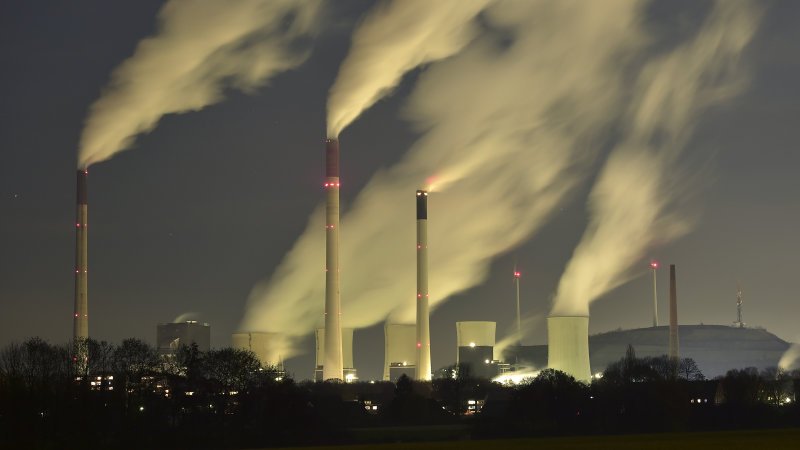Scientists found a way to convert CO2 to ethanol, almost by accident

A group of brainiacs at the famed Tennessee laboratory claims to have found an efficient, scalable way to convert carbon dioxide into ethanol at room temperature using common materials, potentially removing a serious greenhouse gas from the atmosphere.This could be big.
According to the journal ChemistrySelect, the scientists at Oak Ridge were thinking it would take a series of chemical reactions to convert CO2 into some kind of useful fuel, when they realized the first step was already producing fuel. Combining carbon/copper nanospikes on a silicon surface – "common materials," Dr. Adam Rondinone, one of the study's authors, told Popular Mechanics – refined CO2 into a type of ethanol with very few contaminants or side reactions.
Turning CO2 into usable fuel has obvious applications for the auto industry, but as PopMech reports, the potential for the greater energy industry is big. While wind and solar power are growing increasingly common, we humans still can't actually control the wind or the weather, meaning even the most efficient renewables could be idled by a calm, cloudy day. Oak Ridge's discovery could solve that problem.
"A process like this would allow you to consume extra electricity when it's available to make and store as ethanol," Dr. Rondinone told Popular Mechanics. "This could help to balance a grid supplied by intermittent renewable sources."
There's a lot of sciency speak in the journal article, but one of the most important phrases to note is this – "The overpotential probably precludes economic viability for this catalyst." In other words, while the Oak Ridge team did manage to convert CO2 into a usable fuel, this is not a solution to our global energy needs yet.
Oak Ridge will continue studying its breakthrough, and with a spot of luck, we could be looking at a revolutionary way of sorting out the Earth's CO2 problem.
Nouvelles connexes


